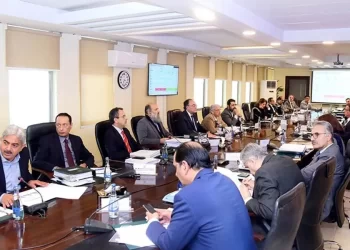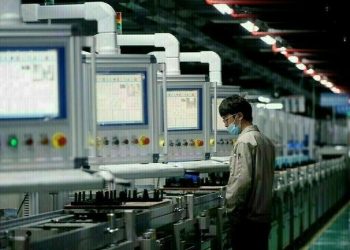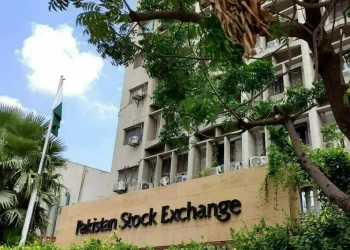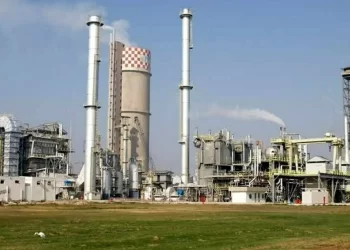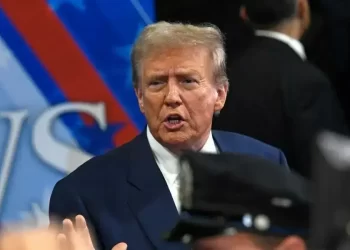Despite growing global economic headwinds resulting from an escalation in the US-China trade war, German companies are exploring business opportunities in Pakistan, with Dubai playing an important role as a regional hub.
Dr. Martin Henkelmann, CEO of the German Emirati Joint Council for Industry and Commerce (AHK UAE) and Florian Walther, Pakistan Representative at the German Emirati Joint Council for Industry and Commerce (AHK UAE) said this in an exclusive interview with media.
AHK stands for “Auslandshandelskammer” in German, which translates to “Chamber of Commerce Abroad”. It is part of a global network that helps German companies establish and expand business operations in foreign markets, including Pakistan, it was learnt.
Dr. Henkelmann and Walther said Dubai serves as a strong regional hub for German companies looking to expand. Many firms from the European state – the third largest economy in the world after the US and China – are optimistic about exploring what a digitally booming Pakistan has to offer.
They are giving serious thought to finding new opportunities in areas like agriculture and agri-tech, IT and software development and fintech as well as smart and energy efficient construction.
Dr. Henkelmann said that a unique factor aiding Germany’s engagement with Pakistan is the role of Dubai. There are some 1,800-2,000 German companies with regional headquarters in Dubai. AHK’s presence there is instrumental in connecting German firms with opportunities in Pakistan.
“It is much easier to take a flight from Dubai to Karachi or to Islamabad and Lahore than getting someone from Germany flying six hours and then changing planes again,” he said, adding that “we will have an event in the beginning of June where we address the regional directors of German companies based in Dubai and speak about Pakistan as an opportunity.”
Pakistan remains on Germany’s radar
Walther said that over the past six months, at least four new German companies have either entered the Pakistani market or expanded their operations within the country, covering sectors such as financial services, energy-related machinery, and infrastructure technology.
“Two of them are in the financial services sector, one is in the energy sector and one is in the industrial/energy sector,” he said.
These investments come at a time when global corporations are reevaluating supply chains, rethinking expansion strategies, and exercising caution amid tariff wars, inflationary pressures, and geopolitical uncertainties. Yet, German firms are leaning in rather than pulling back, with many seeing Pakistan as a land of untapped potential, particularly in new and evolving sectors.
Walther further said that the business confidence of German firms is rising in Pakistan. “We see positive signs,” he said.
Dr. Henkelmann added that a recent survey suggested that “more than 40% of German firms already operating in Pakistan said we will invest more in the country, which is a good sign.”
“This is in contrast to a global environment where often companies don’t want to invest because in general the situation is difficult,” he said.
The survey results showed that business confidence in the market is relatively high and “60% of German companies said that the next 12 months will be better”.
Dr. Henkelmann said the governments of Germany and Pakistan have had a good relationship for over 70 years.
“Pakistan has always been on the radar of German companies,” he said.
Walther added that the bilateral trade volume between Germany and Pakistan stands at $3.5 billion. Pakistan exports to Germany stand at around $2.5 billion, while Germany exports are worth $1 billion to Pakistan, “which represents a positive trade balance of $1.5 billion for Pakistan.”
Germany is the largest contributor to EU-Pakistan trade (total EU trade with Pakistan was $12 billion in 2023).
A big chunk of Pakistan’s exports to Germany (85%) come from the textile and apparel sector.
As far as Germany’s exports to Pakistan are concerned, 35% is machinery and roughly 25% is chemicals. “This shows we have a solid and strong base when it comes to the trade relationship between Germany and Pakistan,” Walther said.
On the flip side, they said, whenever they speak to German companies, whether they are in Germany, the UAE, or Pakistan, the main challenge hindering investment is policy inconsistency.
Over 60% of those surveyed highlighted economic policy conditions as a risk and another 50% saw the prices of energy as a risk in the next 12 months.
The two maintained that the Pakistan-Germany relationship is based on mutual opportunity and growth potential. They said Germany remains committed to strengthening trade and investment ties with Pakistan across both traditional and emerging sectors.
Copyright media, 2025



